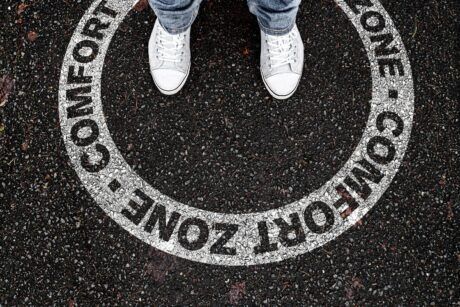This course is designed for those who are interested in learning about REBT and how it can be used on different psychological and life issues. Read more.
LIBBY SEERY - Founder of Renaissance Life Therapies Online Counseling and Psychotherapy: Specialist in the Therapeutic Use of Technology (BACP Endorsed). I am a Psychotherapist, Counselor, and Therapeutic Life Coach. I run a very successful practice in Harley Street, London, which is recognized all over the world as a center of medical excellence. I am a highly trained specialist with a wealth of experience, working with people from all walks of life; including referrals from chariti
Access all courses in our library for only $9/month with All Access Pass
Get Started with All Access PassBuy Only This CourseAbout This Course
R.E.B.T or Rational Emotive Behavioral Therapy to give it it’s full name is a modern effective therapy system that was originally thought up by Albert Ellis during the 1950’s.
R.E.B.T is sometimes referred to as “rational emotive therapy” or simpler still, as “rational therapy”.
R.E.B.T is a type of cognitive behavioral therapy (CBT) that is focused on helping clients change irrational beliefs, and is one of the very few therapies in psychology that has evidence in support of its effectiveness.
R.E.B.T is known as the rational therapy because at its core, this most modern of therapies is all about understanding how we make sense of our emotions.
Everything we feel and everything we do involves emotions, so Ellis developed this action orientated approach to psychotherapy, which produces results by helping clients manage their emotions, their cognitions, and their behaviors.
This most wonderful and modern of therapies teaches us that it’s not events or things that upset and disturb us, but rather how we view these events or things. In essence, how a person thinks, influences their feelings.
When a person believes illogical and irrational beliefs about themselves, others and the world, psychological problems and mental distress will often be the result.
The goal of REBT is to help people alter these negative thinking patterns and irrational, illogical beliefs, in order to overcome any resulting psychological problems.
I have created this course in such a way that everybody can benefit from this amazing therapy approach. No special knowledge of psychology or therapy is needed, as the course has been written for beginners.
An open mind and a willingness to rethink the way in which you view yourself, others and the world are all that is required for you to gain maximum benefit of the REBT Model.
REBT can be effective for a long list of disorders and issues, with a good body of evidence supporting its effectiveness for each one.
These include:
- Depression
- Various forms of anxiety, especially social anxiety
- PTSD
- Phobias
- Panic attacks
- Eating disorders
- All types of addictions
- Problems related to impulse control
- Problems related to emotional control
- Personality disorders
- Anger management
- Pain management
- Stress management
- Coping with health or disability problems
- Child behavioral issues
- Family relationship issues
- Issues specific to couples
- Personal growth, life goal issues, performance at work issues
As you can see, REBT is a versatile approach, helping people with a wide range of psychological and life issues.
After taking this course you will have the knowledge about:
- What is REBT
- Happiness Self Assessment
- What do I need to benefit from REBT
- What can REBT treat
- Why you need REBT
- Using REBT as a Self Help Model
- How does REBT differ from other therapies
- What are the similarities of REBT with CBT
- How does it differ from CBT
- What is the ABCDE Model
- “A” Exploring “Activating Event”
- “B” Your “Belief Systems”
- Exploring the C in REBT “Consequences”
- Exploring the D in REBT “Disputing”
- “E” Looking at the “Effects” in REBT
- The three Basic Musts
- Type 1 Sub-Beliefs
- Type 2 Sub-Beliefs
- Type 3 Sub-Beliefs
- The three types of acceptance and the three core beliefs
- How to inspect your own beliefs
- Positive Thinking and positive self-talk
- Alternative healthier thinking
Our Promise to You
By the end of this course, you will have a clear understanding of REBT and how it can be used on different psychological and life issues.
10 Day Money Back Guarantee. If you are unsatisfied for any reason, simply contact us and we’ll give you a full refund. No questions asked.
Get started today and learn about Rational Emotive Behavioral Therapy and how it works!
Course Curriculum
| Section 1 - Welcome To REBT, Let's Get Started! | |||
| What Is R.E.B.T? | 00:00:00 | ||
| Happiness Self Assessment | 00:00:00 | ||
| Section 2 - REBT Resources, Downloadable Templates, Worksheets & More | |||
| Introduction To The REBT Resources Section | 00:00:00 | ||
| REBT – Negative Thinking Patterns | 00:00:00 | ||
| Positive Thinking & Positive Self-Talk | 00:00:00 | ||
| Using REBT As A Self-Help Tool | 00:00:00 | ||
| Alternative Healthier Thinking In 10 Steps Worksheet | 00:00:00 | ||
| Rational Beliefs Versus Irrational Beliefs For Depression | 00:00:00 | ||
| Section 3 - REBT: The Modern Effective Therapy System | |||
| What Do I Need To Benefit From This Course? | 00:00:00 | ||
| What Can R.E.B.T Treat? | 00:00:00 | ||
| Why Do I Need It? | 00:00:00 | ||
| Section 4 - REBT: The Proven Effective Action Orientated Therapy Approach | |||
| Can R.E.B.T Be Used For Self-Help Or Self-Management? | 00:00:00 | ||
| How Does R.E.B.T Differ From Other Therapies? | 00:00:00 | ||
| What Are The Similarities With CBT? | 00:00:00 | ||
| How Does R.E.B.T Differ From CBT? | 00:00:00 | ||
| Section 5 - The ABCDE Model | |||
| What Is The ABCDE Model? | 00:00:00 | ||
| The "A" Of The ABCDE Model Stands For "Activating Event" | 00:00:00 | ||
| The "B" Of The ABCDE Model Stands For "Belief System" | 00:00:00 | ||
| The "C" Of The ABCDE Model Stands For "Consequences" | 00:00:00 | ||
| The "D" Of The ABCDE Model Stands For "Disputing" | 00:00:00 | ||
| The "E" Of The ABCDE Model Stands For "Effect" | 00:00:00 | ||
| Section 6 - The "Three Basic Musts" & The Sub-Beliefs Of Each (Type 1, 2 & 3) | |||
| The "Three Basic Musts" | 00:00:00 | ||
| Variations Of The "Three Basic Musts" – Type 1 Sub-Beliefs | 00:00:00 | ||
| Variations Of The "Three Basic Musts" – Type 2 Sub-Beliefs | 00:00:00 | ||
| Variations Of The "Three Basic Musts" – Type 3 Sub-Beliefs | 00:00:00 | ||
| Section 7 - REBT In Action Using Case Studies As Examples | |||
| Case Studies & Examples: The ABCDE Model | 00:00:00 | ||
| Case Studies & Examples: Disputing | 00:00:00 | ||
| Case Studies & Examples: Effects | 00:00:00 | ||
| Case Studies & Examples: The "Three Basic Musts" | 00:00:00 | ||
| Case Studies & Examples: Identifying Type 1, Type 2 & Type 3 Sub-Beliefs | 00:00:00 | ||
| Emotional & Behavioural Consequences Of The "Three Basic Musts" | 00:00:00 | ||
| Case Studies & Examples: Negative Consequences | 00:00:00 | ||
| Section 8 - The Three Types Of Acceptance | |||
| The Three Types Of Acceptance & The Three Core Beliefs Of Each | 00:00:00 | ||
| How To Inspect Your Own Beliefs | 00:00:00 | ||
| Conclusion | 00:00:00 | ||
About This Course
R.E.B.T or Rational Emotive Behavioral Therapy to give it it’s full name is a modern effective therapy system that was originally thought up by Albert Ellis during the 1950’s.
R.E.B.T is sometimes referred to as “rational emotive therapy” or simpler still, as “rational therapy”.
R.E.B.T is a type of cognitive behavioral therapy (CBT) that is focused on helping clients change irrational beliefs, and is one of the very few therapies in psychology that has evidence in support of its effectiveness.
R.E.B.T is known as the rational therapy because at its core, this most modern of therapies is all about understanding how we make sense of our emotions.
Everything we feel and everything we do involves emotions, so Ellis developed this action orientated approach to psychotherapy, which produces results by helping clients manage their emotions, their cognitions, and their behaviors.
This most wonderful and modern of therapies teaches us that it’s not events or things that upset and disturb us, but rather how we view these events or things. In essence, how a person thinks, influences their feelings.
When a person believes illogical and irrational beliefs about themselves, others and the world, psychological problems and mental distress will often be the result.
The goal of REBT is to help people alter these negative thinking patterns and irrational, illogical beliefs, in order to overcome any resulting psychological problems.
I have created this course in such a way that everybody can benefit from this amazing therapy approach. No special knowledge of psychology or therapy is needed, as the course has been written for beginners.
An open mind and a willingness to rethink the way in which you view yourself, others and the world are all that is required for you to gain maximum benefit of the REBT Model.
REBT can be effective for a long list of disorders and issues, with a good body of evidence supporting its effectiveness for each one.
These include:
- Depression
- Various forms of anxiety, especially social anxiety
- PTSD
- Phobias
- Panic attacks
- Eating disorders
- All types of addictions
- Problems related to impulse control
- Problems related to emotional control
- Personality disorders
- Anger management
- Pain management
- Stress management
- Coping with health or disability problems
- Child behavioral issues
- Family relationship issues
- Issues specific to couples
- Personal growth, life goal issues, performance at work issues
As you can see, REBT is a versatile approach, helping people with a wide range of psychological and life issues.
After taking this course you will have the knowledge about:
- What is REBT
- Happiness Self Assessment
- What do I need to benefit from REBT
- What can REBT treat
- Why you need REBT
- Using REBT as a Self Help Model
- How does REBT differ from other therapies
- What are the similarities of REBT with CBT
- How does it differ from CBT
- What is the ABCDE Model
- “A” Exploring “Activating Event”
- “B” Your “Belief Systems”
- Exploring the C in REBT “Consequences”
- Exploring the D in REBT “Disputing”
- “E” Looking at the “Effects” in REBT
- The three Basic Musts
- Type 1 Sub-Beliefs
- Type 2 Sub-Beliefs
- Type 3 Sub-Beliefs
- The three types of acceptance and the three core beliefs
- How to inspect your own beliefs
- Positive Thinking and positive self-talk
- Alternative healthier thinking
Our Promise to You
By the end of this course, you will have a clear understanding of REBT and how it can be used on different psychological and life issues.
10 Day Money Back Guarantee. If you are unsatisfied for any reason, simply contact us and we’ll give you a full refund. No questions asked.
Get started today and learn about Rational Emotive Behavioral Therapy and how it works!
Course Curriculum
| Section 1 - Welcome To REBT, Let's Get Started! | |||
| What Is R.E.B.T? | 00:00:00 | ||
| Happiness Self Assessment | 00:00:00 | ||
| Section 2 - REBT Resources, Downloadable Templates, Worksheets & More | |||
| Introduction To The REBT Resources Section | 00:00:00 | ||
| REBT – Negative Thinking Patterns | 00:00:00 | ||
| Positive Thinking & Positive Self-Talk | 00:00:00 | ||
| Using REBT As A Self-Help Tool | 00:00:00 | ||
| Alternative Healthier Thinking In 10 Steps Worksheet | 00:00:00 | ||
| Rational Beliefs Versus Irrational Beliefs For Depression | 00:00:00 | ||
| Section 3 - REBT: The Modern Effective Therapy System | |||
| What Do I Need To Benefit From This Course? | 00:00:00 | ||
| What Can R.E.B.T Treat? | 00:00:00 | ||
| Why Do I Need It? | 00:00:00 | ||
| Section 4 - REBT: The Proven Effective Action Orientated Therapy Approach | |||
| Can R.E.B.T Be Used For Self-Help Or Self-Management? | 00:00:00 | ||
| How Does R.E.B.T Differ From Other Therapies? | 00:00:00 | ||
| What Are The Similarities With CBT? | 00:00:00 | ||
| How Does R.E.B.T Differ From CBT? | 00:00:00 | ||
| Section 5 - The ABCDE Model | |||
| What Is The ABCDE Model? | 00:00:00 | ||
| The "A" Of The ABCDE Model Stands For "Activating Event" | 00:00:00 | ||
| The "B" Of The ABCDE Model Stands For "Belief System" | 00:00:00 | ||
| The "C" Of The ABCDE Model Stands For "Consequences" | 00:00:00 | ||
| The "D" Of The ABCDE Model Stands For "Disputing" | 00:00:00 | ||
| The "E" Of The ABCDE Model Stands For "Effect" | 00:00:00 | ||
| Section 6 - The "Three Basic Musts" & The Sub-Beliefs Of Each (Type 1, 2 & 3) | |||
| The "Three Basic Musts" | 00:00:00 | ||
| Variations Of The "Three Basic Musts" – Type 1 Sub-Beliefs | 00:00:00 | ||
| Variations Of The "Three Basic Musts" – Type 2 Sub-Beliefs | 00:00:00 | ||
| Variations Of The "Three Basic Musts" – Type 3 Sub-Beliefs | 00:00:00 | ||
| Section 7 - REBT In Action Using Case Studies As Examples | |||
| Case Studies & Examples: The ABCDE Model | 00:00:00 | ||
| Case Studies & Examples: Disputing | 00:00:00 | ||
| Case Studies & Examples: Effects | 00:00:00 | ||
| Case Studies & Examples: The "Three Basic Musts" | 00:00:00 | ||
| Case Studies & Examples: Identifying Type 1, Type 2 & Type 3 Sub-Beliefs | 00:00:00 | ||
| Emotional & Behavioural Consequences Of The "Three Basic Musts" | 00:00:00 | ||
| Case Studies & Examples: Negative Consequences | 00:00:00 | ||
| Section 8 - The Three Types Of Acceptance | |||
| The Three Types Of Acceptance & The Three Core Beliefs Of Each | 00:00:00 | ||
| How To Inspect Your Own Beliefs | 00:00:00 | ||
| Conclusion | 00:00:00 | ||





Rational Emotive Behavioural Therapy
An excellent introduction, covering the 3 basic “Must” statements, core beliefs, the 3 kinds of acceptance, and meta-cognition. It can’t be done in 2 hours, it requires careful review, and takes 4-5 hours in total.
Good introduction to REBT
I enjoyed this easy to digest course which gave me a good insight into REBT. I hope to be able to use what I have learnt on myself and in my work with young people.
Sound first introduction to REBT
Nicely constructed course with easy to digest modules that help accumulate knowledge fast.
Informative and enjoyable.
I bought this course as I am interested in counselling and CBT, both with a view to helping friends and family and also as a possible future career. I enjoyed doing this so much I did nothing else all day. Looking forward to trying it out.
Julia was very helpful when I was having trouble downloading the materials as well.
interesting course
Libby gives a good illustration of REBT, its not the most best form of therapy on its own or all the time, but it is a worthwhile one sometimes to help people to question expectations around them as life throws a lot at us.